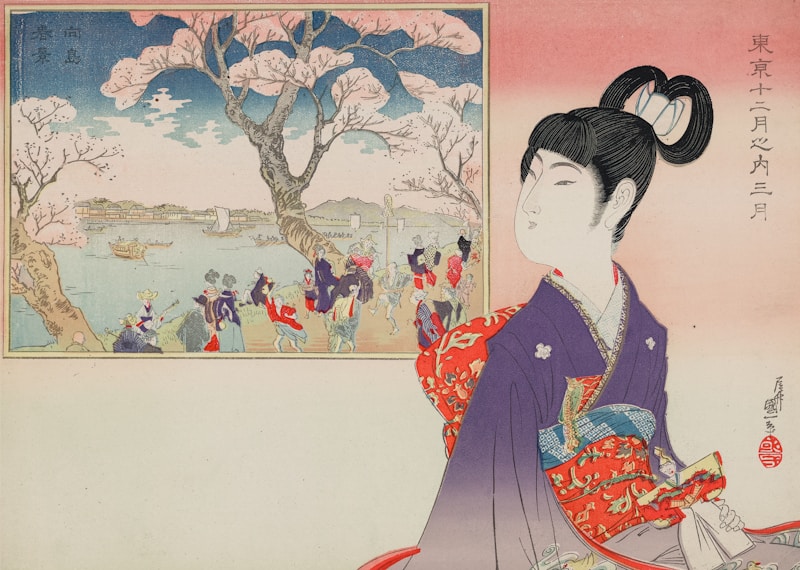Exploring Heritage-Inspired Celebrations: A Guide to Cultural Festivities
Understanding Heritage-Inspired Celebrations
Heritage-inspired celebrations refer to festivities that draw upon traditional customs, rituals, and cultures, allowing individuals and communities to honor their ancestry. These celebrations can range from family gatherings to large public events, each encapsulating a distinct cultural significance. The integration of heritage into modern celebrations revitalizes cultural practices and promotes awareness and appreciation of diverse traditions.
The Importance of Heritage-Inspired Celebrations
Heritage-inspired celebrations are crucial for several reasons:
- Cultural Preservation: They help preserve the unique customs and traditions of various cultures, ensuring that future generations remain connected to their roots.
- Community Bonding: These events foster a sense of community by bringing people together, creating shared experiences, and strengthening social ties.
- Education: They provide an educational opportunity for individuals, especially those unfamiliar with certain cultures, to learn about different traditions, customs, and practices.
Different Types of Heritage-Inspired Celebrations
Heritage-inspired celebrations come in various forms. Here are a few notable examples:
| Festival | Description |
| Diwali | An ancient Hindu festival of lights, celebrated primarily in India and among diasporic communities worldwide, symbolizing the victory of light over darkness. |
| Chinese New Year | Also known as the Spring Festival, this celebration marks the beginning of the new year on the lunar calendar, filled with vibrant parades, family reunions, and traditional food. |
| Oktoberfest | A world-renowned festival held in Munich, Germany, celebrating Bavarian culture with traditional music, food, and, of course, beer! |
| Day of the Dead (Día de los Muertos) | A Mexican holiday honoring deceased loved ones, characterized by colorful altars, offerings, and festive gatherings. |
Heritage-Inspired Celebrations Around the World
These celebrations differ from region to region, each with its unique cultural practices. Let's explore some popular heritage-inspired celebrations worldwide:
North America
In the United States, cultural festivals such as Mardi Gras and Thanksgiving have deep roots. Mardi Gras, particularly in New Orleans, is known for its vibrant parades and lively celebrations, while Thanksgiving brings families together to share in traditional meals and gratitude. In Canada, events like the Calgary Stampede celebrate Western culture and heritage through rodeos and cultural exhibitions.
Europe
Europe hosts a myriad of heritage-inspired celebrations that draw significantly from history and culture. For instance, Bastille Day in France celebrates the French Revolution, while La Tomatina in Spain is a quirky festival where participants engage in a massive tomato fight. These gatherings not only entertain but also serve educational purposes about each country's history and values.
Asia
Festivals in Asia highlight the richness of cultural traditions. For instance, Holi, celebrated across India, is known as the festival of colors, signifying the arrival of spring and celebrating love and harmony. Another example is the Lantern Festival in China, which marks the final day of the Lunar New Year celebrations, featuring dragon dances, fireworks, and the release of lanterns into the sky.
Africa
Africa's diverse cultures are celebrated through vibrant festivals like the Zulu Reed Dance in South Africa, celebrating womanhood and cultural heritage. The Harare International Festival of the Arts in Zimbabwe showcases various artistic expressions, including music, theater, and dance, emphasizing the continent's rich artistic landscape.
Oceania
In Australia and New Zealand, cultural festivals like the Sydney Festival and Te Matatini celebrate the heritage of Indigenous peoples. They offer a platform for showcasing traditional music, dance, and arts, reinforcing the importance of understanding and preserving Indigenous cultures.

How to Organize Your Own Heritage-Inspired Celebration
If you're interested in hosting a heritage-inspired celebration, here are some steps to guide you:
- Research: Begin by researching your cultural background or the culture you wish to celebrate. Understand the traditions, customs, and rituals involved.
- Select a Date: Choose a date that holds significance to the culture or aligns with a relevant festival.
- Plan Activities: Incorporate authentic activities like traditional dance, music, and culinary experiences that reflect the cultural background.
- Invite Participants: Invite friends, family, and community members to join in the celebration and encourage them to share their experiences.
- Share the Knowledge: Use the celebration as an opportunity to educate attendees about the cultural significance and history behind the festivities.
Conclusion: Embracing Cultural Heritage in Celebrations
Heritage-inspired celebrations are a beautiful way to honor and preserve cultural traditions, creating a sense of identity and community. These events not only provide enjoyable experiences but also serve as platforms for education and cultural appreciation. Whether you're participating in a community festival or hosting one of your own, embracing cultural heritage through celebrations is a meaningful way to celebrate diversity and bring people together.
As you explore different heritage-inspired celebrations, consider immersing yourself in the traditions, encouraging dialogue, and promoting inclusivity within your community. Remember that each celebration is an opportunity to learn, connect, and honor the tapestry of human experience.
In summary, embracing heritage-inspired celebrations enriches our lives, fosters connections, and paves the way for a deeper understanding of the diverse world we live in. Explore, celebrate, and make lasting memories!